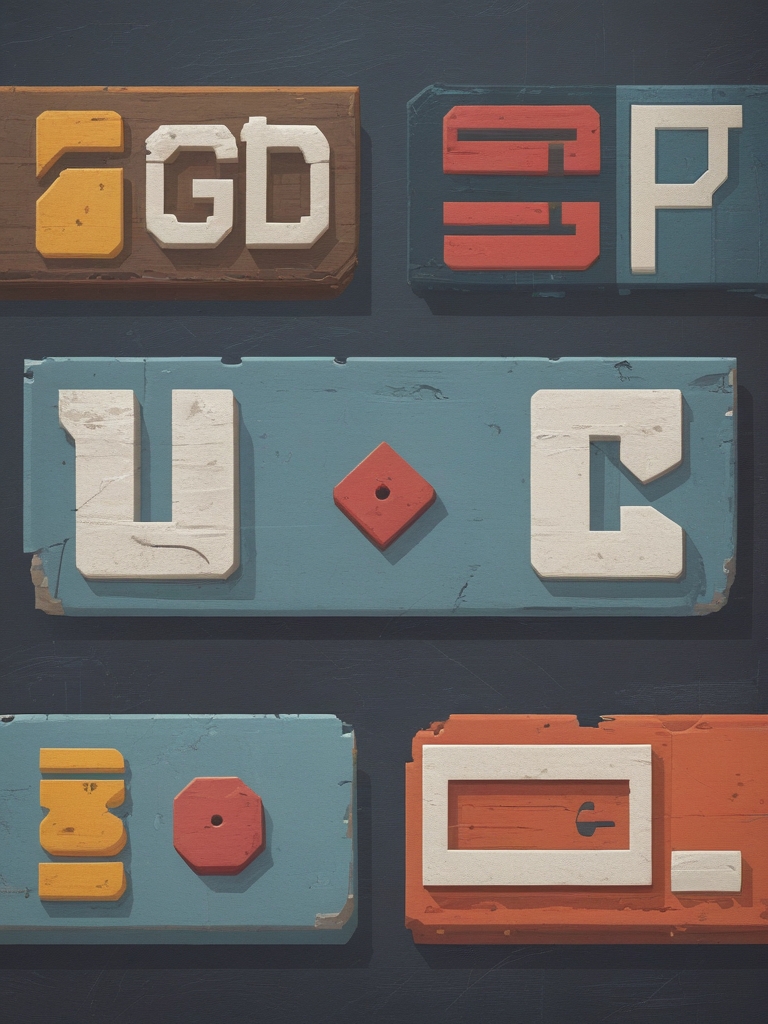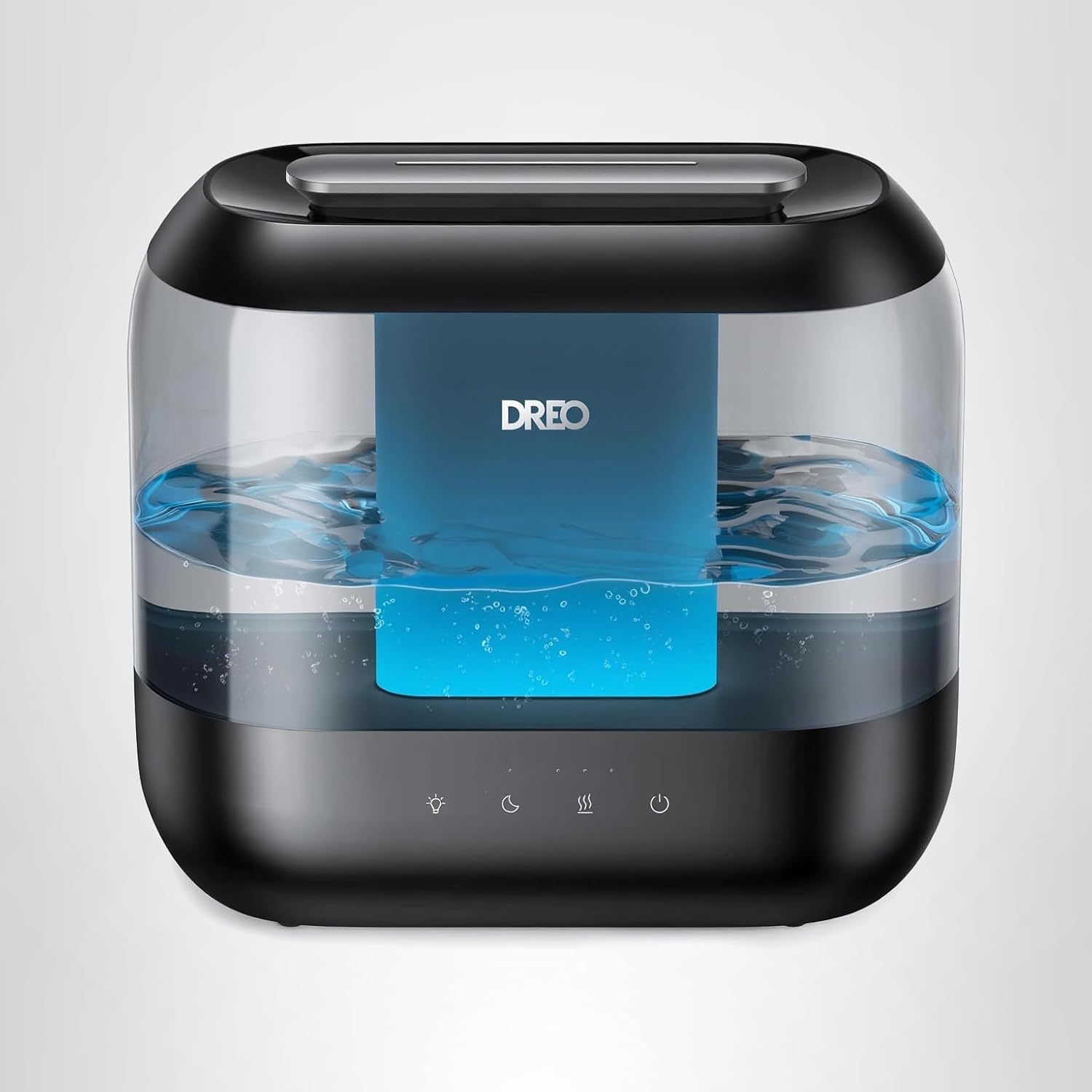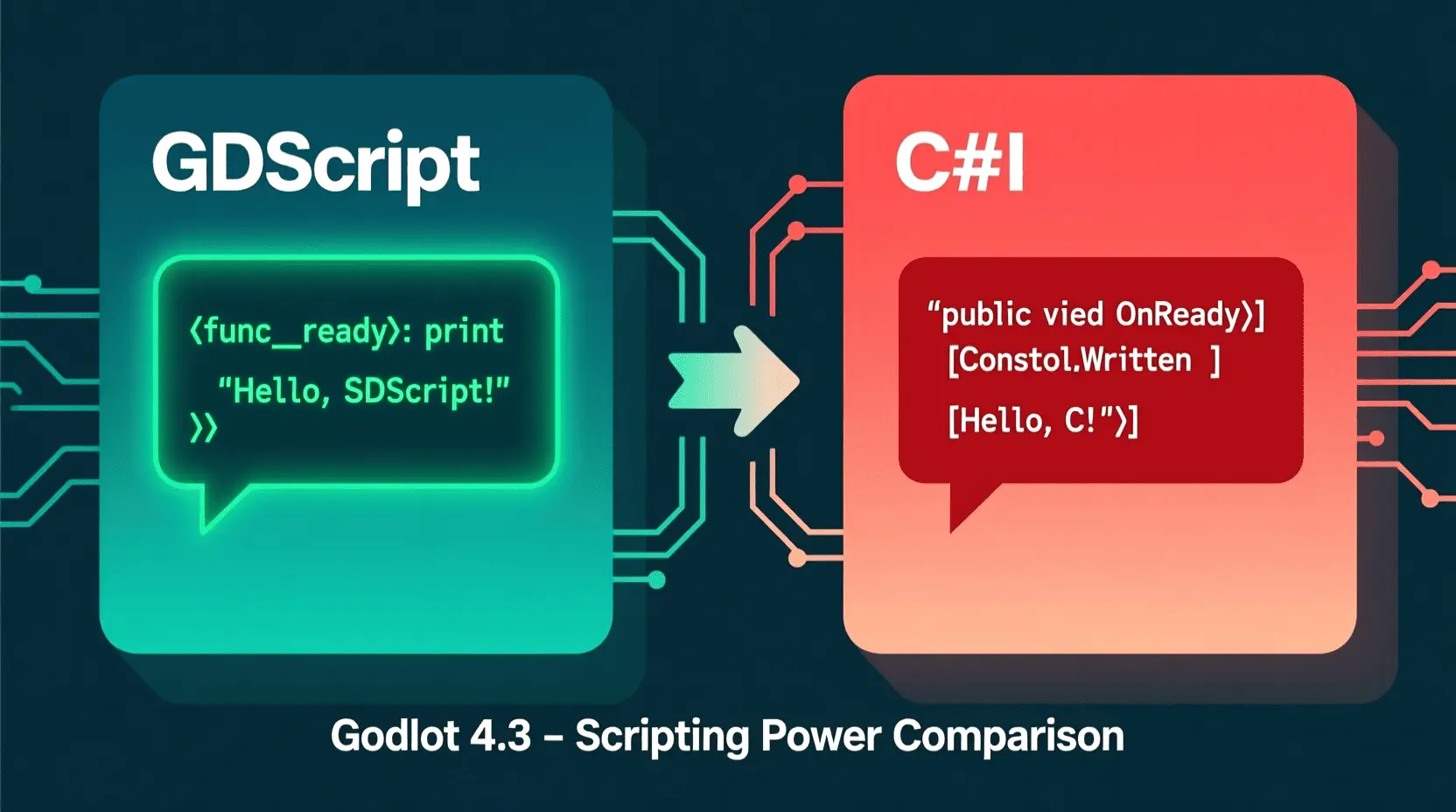Have you ever dreamt of bringing your own virtual worlds to life, crafting engaging stories, or designing the next big hit game? Game development for beginners might seem daunting, but the truth is, creating games at home is more accessible and inspiring than ever before. It’s a field where creativity meets logic, and with the right tools, anyone can embark on this exciting journey. As the Godot Engine gains rapid popularity, a critical decision for many aspiring developers within its ecosystem is choosing between its native GDScript and the more broadly used C#. This post will dive deep into this pivotal choice, examining the strengths and weaknesses of each, while also guiding you through the broader landscape of game development.
Materials & Supplies

To kickstart your game development journey, you’ll need a few essential items. A reliable computer (desktop or laptop) is your primary workstation. Next, a game engine like Godot (free and open-source), Unity, or Unreal Engine, will be your creative sandbox. For coding, a dedicated code editor such as VS Code is highly recommended. For visual assets, free alternatives like Krita or GIMP for 2D art, and Blender for 3D modeling, are excellent starting points. Audio tools like Audacity can help with sound effects and music. These tools collectively empower you to design, program, and build your game from scratch.
Timing / Development Schedule
The timeline for creating a game varies wildly depending on its complexity. For a simple project, like a 2D platformer or a puzzle game, planning might take a few days to a week. The coding and asset creation phase can span several weeks to a few months. Crucially, don’t underestimate the testing and debugging phase, which can often take as long as the initial development. Finally, publishing involves packaging your game and making it available, which can be a quick process or involve navigating platform-specific requirements. Aim for a “vertical slice” a small, playable portion of your game early on to get a realistic sense of scope.
Step-by-Step Instructions

To begin developing a simple game, follow these practical steps:
1. Concept & Design: Start with a clear idea. What’s the core mechanic? Who is the player? Sketch out your game loop.
2. Engine Setup: Download and install your chosen game engine (e.g., Godot). Familiarize yourself with its interface.
3. Prototype Core Mechanics: Don’t build everything at once. Focus on making the central gameplay loop functional.
4.Asset Creation: Develop simple placeholder graphics and sounds. You can always replace them later.
5. Coding & Scripting: Implement your game logic. This is where your choice of scripting language, like GDScript or C# in Godot, comes into play.
6. Debugging & Testing: Playtest constantly. Find and fix bugs. Get feedback from others.
7. Refine & Polish: Improve graphics, add sound effects, and smooth out gameplay.
Advantages of Learning Game Development
Learning game development offers a plethora of benefits beyond just creating games. It significantly boosts your creativity, challenging you to think outside the box. It sharpens your problem-solving abilities and enhances logical thinking as you tackle complex programming puzzles. Collaboration with others, often a part of game projects, fosters teamwork and communication skills. Furthermore, the burgeoning game industry presents numerous career opportunities, making it a valuable skill set. Building games at home is a powerful way to fuse technical prowess with artistic expression.
Tips, Alternative Methods, or Development Advice
For beginners, starting with 2D games is often less complex than diving directly into 3D. Consider visual scripting tools, like Godot’s visual script (though GDScript or C# are usually preferred for more complex logic) or Scratch, to grasp fundamental concepts without heavy coding initially. If you have limited hardware, Godot is remarkably lightweight, making it an excellent choice. Don’t be afraid to collaborate online with other aspiring developers; it’s a fantastic way to learn and stay motivated. Actively engage with tutorials, online courses, and developer communities to optimize your learning curve.
Common Mistakes to Avoid
Beginners often fall into common traps. The biggest one is overcomplicating the first project; start small and finish it! Neglecting thorough testing can lead to frustrating bugs down the line. Ignoring player feedback means missing valuable insights for improvement. Also, remember to take breaks to avoid burnout and always back up your work. Staying motivated is key; celebrate small victories and learn from every challenge.
Maintenance / Update Tips
Once your game is released, the journey isn’t over. Implement version control from day one using tools like Git to track changes and collaborate effectively. Regularly release bug fixes and minor updates to improve player experience. Consider adding new content or features to keep players engaged. Actively collect and analyze player feedback to guide future updates. Always keep your project files organized and backed up to prevent data loss.
Conclusion
Embarking on the game development journey at home is an incredibly rewarding experience, fostering creativity, problem solving, and valuable technical skills. While the path can seem intricate, starting small, practicing consistently, and sharing your creations are the keys to success. For those diving into the Godot Engine, understanding the nuanced differences between GDScript and C# is crucial for your project’s foundation. This foundational choice will impact your workflow, performance, and future scalability. We encourage you to explore more tutorials and connect with the vibrant developer community to accelerate your learning.
FAQs
What programming language should I start with?
For Godot, godot gdscript vs c# is a common dilemma. GDScript is Godot’s native, Python-like language, designed for ease of use and rapid prototyping, making it excellent for beginners. C# offers more performance and familiarity for those with prior programming experience, especially from a Unity background. If you’re new to programming, GDScript is generally recommended for its lower barrier to entry.
Which game engine is best for beginners?
Godot Engine is highly recommended for beginners due to its intuitive interface, active community, and free, open source nature. Unity and Unreal Engine are also popular but have steeper learning curves. The choice often depends on your target platform, project scope, and preferred coding language. For many, the comparison between godot vs unity often comes down to open-source flexibility versus industry-standard ubiquity.
How long does it take to make a small game?
A very small, simple game (e.g., a “Pong” clone or a basic platformer) can take anywhere from a few days to a few weeks for a dedicated beginner. More complex “small” games might extend to a few months. The key is to start with a truly manageable scope.
Do I need to know coding to start?
While coding is essential for most game logic, you don’t need to be an expert to start. Many engines offer visual scripting tools, and there are countless beginner-friendly tutorials. However, learning a programming language like GDScript or C# will eventually be invaluable for deeper control and more complex games.
Where can I publish my first game?
You can publish your first game on various platforms. Itch.io is very popular among indie developers for its ease of use and supportive community. Other options include Steam (requires a fee), Google Play Store (for Android), or Apple App Store (for iOS).
Make Your First 2D Game in Unity
Want to build your first game but don’t know where to start? This beginner-friendly guide shows you how to create SampleGame2D — a fun Flappy Bird–style project — step by step in Unity. Inside you’ll learn:
Ultimate Mobile Controls – Plug & Play
Take your mobile game to the next level with this ready-to-use Mobile Controls Pack. customizable mobile controls without wasting days on UI and input setup. Perfect for 2D, 3D, FPS, RPG, Platformer, Shooter, and Casual mobile games.

Dreo Humidifiers for Bedroom
Dreo Humidifiers for Bedroom, 4L Top Fill for Large Room, 36H Runtime, 28 dB Quiet Supersized Cool Mist Air Humidifier for Baby Nursery, Plants, Indoor, Night Light, Easy to Clean & Fill, Black

MMO Mug
MMO Mug - Legendary Coffee Mug Level 110 - Large Ceramic Black15oz - Gaming, Gamer Cup

iFIT Pro
iFIT Pro - Monthly Membership - 1 month free trial included [Subscription]
interface sounds OGG
interface sounds, UI sound effects, UX sound effects, game UI sounds, mobile UI audio, notification sound effects, button click SFX, menu sounds, toggle switch sounds, error alert sounds


I’ve been surfing online more than three hours today, yet I never found any interesting article like yours. It is pretty worth enough for me. In my opinion, if all web owners and bloggers made good content as you did, the internet will be much more useful than ever before.
Hey just wanted to give you a quick heads up. The text in your post seem to be running off the screen in Internet explorer. I’m not sure if this is a formatting issue or something to do with internet browser compatibility but I figured I’d post to let you know. The style and design look great though! Hope you get the problem fixed soon. Many thanks
Lovely just what I was searching for.Thanks to the author for taking his clock time on this one.
This really answered my problem, thank you!
hi!,I like your writing very much! share we communicate more about your article on AOL? I need an expert on this area to solve my problem. May be that’s you! Looking forward to see you.
I am not certain where you are getting your information, however great topic. I must spend a while learning much more or figuring out more. Thank you for wonderful information I was looking for this information for my mission.
Just wanna remark on few general things, The website design and style is perfect, the content material is real great : D.
What i don’t understood is actually how you’re no longer actually much more neatly-liked than you might be now. You are so intelligent. You understand therefore considerably on the subject of this matter, produced me individually believe it from a lot of numerous angles. Its like women and men aren’t involved except it is one thing to accomplish with Lady gaga! Your individual stuffs great. At all times handle it up!
It¦s truly a nice and useful piece of information. I am glad that you simply shared this helpful information with us. Please stay us informed like this. Thank you for sharing.
This really answered my problem, thank you!
Rattling informative and good anatomical structure of subject matter, now that’s user genial (:.
Howdy! Do you know if they make any plugins to safeguard against hackers? I’m kinda paranoid about losing everything I’ve worked hard on. Any recommendations?
Sugaring effektive und moderne Haarentfernung in Berlin Die Epilation mit Zuckerpaste wird von unseren speziell dafür ausgebildeten Kosmetikerinnen / Depiladoras an allen Körperregionen durchgeführt. Wir bieten diese effektive und moderne Behandlung sehr erfolgreich und schonend mit einem Maximum in der Hygiene der Anwendung an. Sugaring wird immer beliebter.